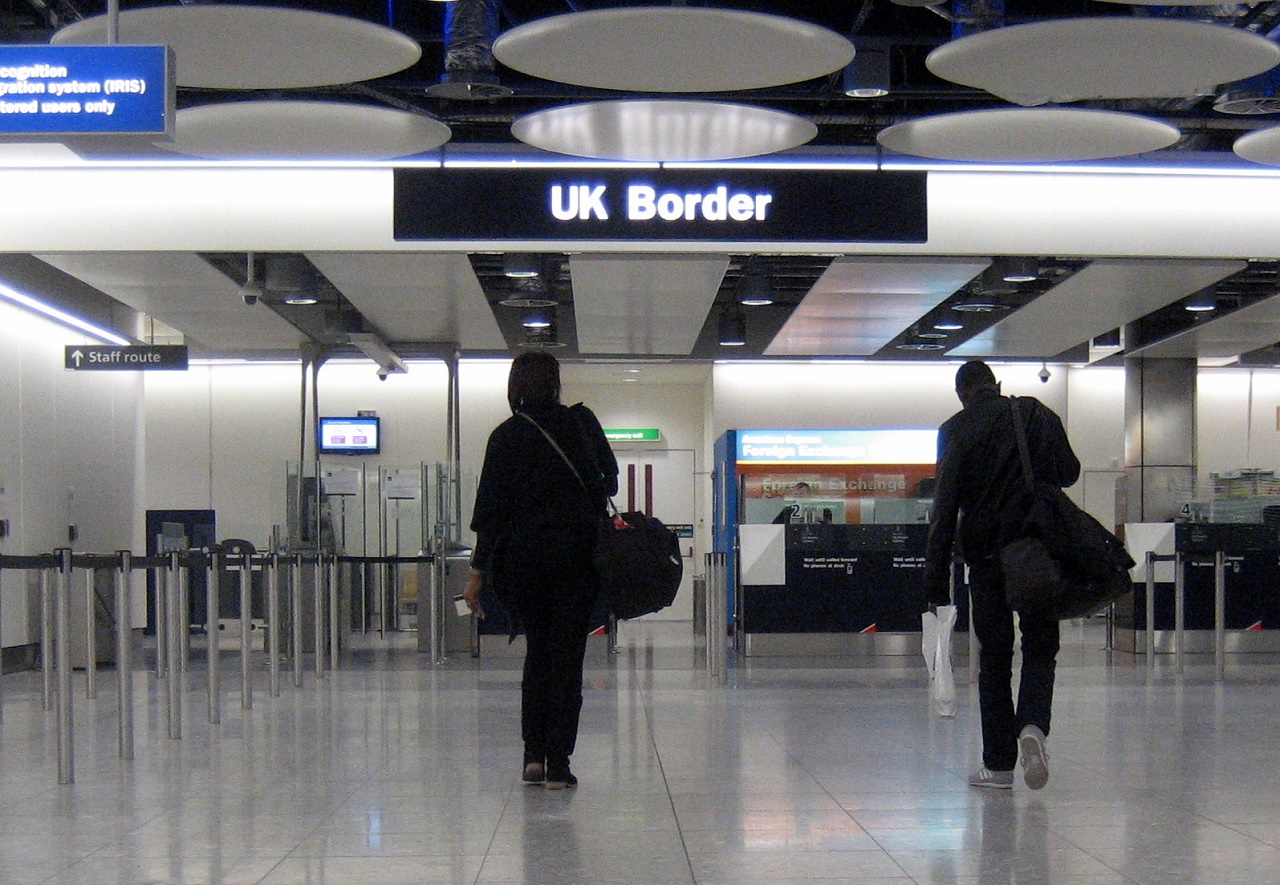John Turnpenny explains why immigration has become a such a key political issue in Britain, arguing that there has been an absence of informed debate.
Just when I thought I was into a relaxing weekend, sitting back in the barber’s chair, I was returned to the real world with the inevitable question about my occupation, followed up swiftly by ‘what do you think about these immigrants then? We’re sinking under the weight of them!’
We cannot switch on the TV, listen to the news – or even, it seems, get a haircut – without people talking about asylum seekers, illegal migrants, EU workers, benefits tourists, guest workers, or any amount of other names. We hear that numbers are higher than ever, that people are taking our jobs, people are taking our benefits; people are eating our donkeys, immigrants are good /bad for the economy, people are racist/foolish/hateful/burying their heads/not listening to ordinary people…. Read the comments section below any story about immigration for a sip of the acid.
The cliché “we need a national debate about….” might have been developed for the subject of immigration. Indeed, there is no shortage of popular opinion, or academic research, on the subject, but a rational and informed national debate? That always seems a long way away. Why? If we think of immigration as simply people moving from another country to the UK to live, I argue there are at least five contradictory and very powerful forces involved. These all pull in different directions, which make immigration almost impossible to address without causing even more problems. In short, there is no easy answer.
First, economic, social and political conditions in other countries are sometimes much worse than in the UK. The minimum wage in Bulgaria, for example, is about one fifth that in the UK. If wages are low and unemployment rates high in one country, there is a very strong drive for people to improve their situation, even against the huge social dislocation of moving countries. A still stronger driving force is that in some countries, torture, political persecution, restrictions on speech, movement and civil liberty make people desperate to flee. This can make people do almost anything, including taking huge risks and paying huge amounts of money to swindlers. Witness the desperation of people crowding onto unsafe boats in the Mediterranean, or clinging on underneath lorries in Calais.
Second, there is a powerful ‘pull’ factor from the UK’s desire for more (cheap) labour. There is a significant interest for employers in keeping wages low, and in filling dirty, hard, uncomfortable jobs that British nationals are not keen on doing. But there is also demand for high-skilled workers and investment at the other end of the job market, particularly in London. Indeed, the director-general of the CBI has said that EU migration is essential for the UK economy. Limiting immigration from this perspective is a disaster for business, especially smaller companies. And a study published in 2014, based on research at the UCL Centre for Research and Analysis of Migration, found that European immigrants to the UK have paid more in taxes than they received in benefits. So there is an important economic force, and strongly-motivated interest groups, involved.
Third, the European Union has a fundamental principle of free movement of workers. Any EU citizen can move to any other EU country, without a prior job offer, and get a job without discrimination. So it is against the law to restrict migration within the EU. On a related aspect, we live in a world with global movement of money, goods, services and companies. While the degree and impacts of ‘globalisation’ are still debated, this movement means there is huge pressure for people to move as well. Free movement of people as a counterpoint to free movement of capital makes sense to those on the left (fairness) and right (migrants help make an economy ‘flexible’, moving with demand for labour).
Fourth, British people are, to put it delicately, often sceptical about immigration. A YouGov poll in 2014 confirmed many surveys before and since. It showed that three in four people supported the Conservative aim to reduce immigration to below 100 000 per year, but even more (83%) were not convinced this would happen. We have seen the rise of support for the English Defence League, the British National Party, and the UK Independence Party, all of whom take a more robust stance on immigration than the ‘main’ political parties. The perceived threat to peoples’ sense of identity, culture, and being is a powerful and primal force.
Finally, the perception of what is happening is often at odds with what is actually happening. For example, in response to the question posed in a Ipsos MORI Poll in July 2013: “What percentage of the United Kingdom population do you think are immigrants to this country (i.e. not born in the UK)?”, the average reply was 31%. The actual figure is 13%. We don’t just see this discrepancy with immigration. In the same poll, on average people thought that 24% of the British population is Muslim. Even accounting for the fact that some respondents might have come from Birmingham, Bradford or Blackburn (where the figure is about a quarter) and simply be reporting their own experience, this is way off the mark. The real proportion is 5%. And what about the number of girls under 16 who get pregnant each year? The average poll figure was 15%, but the actual rate is 0.6%. This last example is so far off that perceptions cannot be explained by differential personal experiences. The point of all this is that perceptions are often very far from reality. But the perception of how, for example, the government is doing, is as important as some externally defined ‘reality’. In the majority of cases, it is voters’ perceptions that guide their behaviour, not dispassionate analysis. And often when presented with the ‘correct’ picture, people would rather defend their perceptions than trust in some external source. This is tribal and primal rather than rational.
So overall, we have a ‘push’ from other countries to the UK; a ‘pull’ from the UK along with powerful economic and business interests; supra-national agreements, law and economic principles; cultural and human fears; and an often wayward understanding of what is actually going on. I have some sympathy with politicians of every party, put as they are in very difficult positions; whatever they do will be pulled askew by one of the other opposing forces. Each party therefore focuses on a different ‘big picture’ aspect, which to a certain extent reflects their differing worldviews and core ideologies. The Conservatives aim at reducing numbers, and reducing access to benefits for immigrants. Labour focus on targeting badly-paying employers, better border controls and administration, and a smaller emphasis on restricting benefits. UKIP, after some debate, want a points-based system for entry of skilled migrants, and, in line with the policy of leaving the EU, would treat EU citizens the same as those from elsewhere. The Liberal Democrats, like Labour, see the problem as more one of administration of controls and monitoring, and explicitly want to attract high-skilled workers. A concern for the welfare of immigrants themselves is also evident, such as the policy of ending child detention. The Greens again focus on improving process and administration, and also on immigrants’ welfare through reducing people trafficking, but also take a wider stance about the need for a fairer world which would reduce some of those ‘pushes and pulls’.
To conclude, we are as far away from a dispassionate national debate about immigration as ever. In fact, I would argue that the combination of powerful contradictory forces makes this almost impossible. Until we can open up the dialogue by being explicit about what lies behind our varied positions on immigration, we are doomed to many more uncomfortable haircuts.
Dr. John Turnpenny is a Senior Lecturer in Public Policy and Public Management at the University of East Anglia.
Image credit: Wikipedia






Perception and reality.
I was very struck by your statistics. And therefore by how much politicians’ pronouncements are based on the electorates perceptions, [and not what is really going on].
Scary.
A world of illusion.
A good read. A few of my friends have thoughts on immigration which are, I believe, quite irrational. I think part of the problem is that (even with unrelated problems) reducing immigration is seen as a ‘magic bullet’, and also that costs involved in running a state are just beyond belief nowadays, so saying that reducing immigration could save £X million in something or other sounds amazing, but it would probably only cover the running costs of the NHS for an hour.